We may not have the course you’re looking for. If you enquire or give us a call on +1800812339 and speak to our training experts, we may still be able to help with your training requirements.
Training Outcomes Within Your Budget!
We ensure quality, budget-alignment, and timely delivery by our expert instructors.
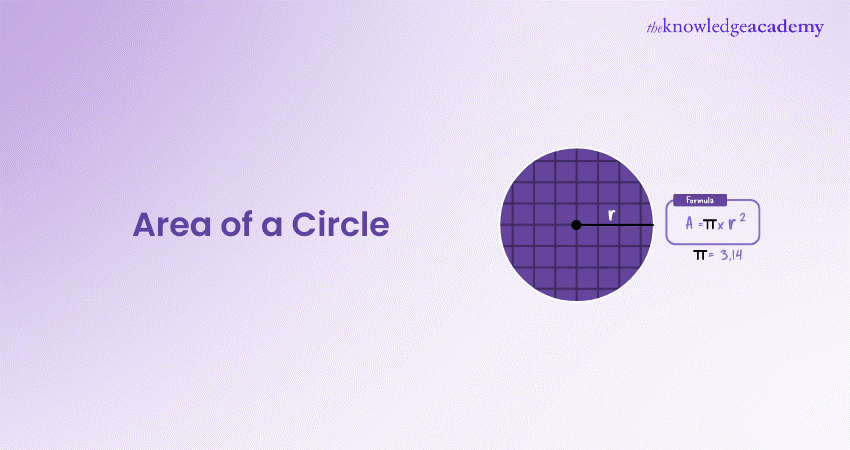
Ever stared at a delicious pizza, wondering exactly how much cheesy goodness you're about to devour? Or maybe you're designing a dream pool and need to calculate the perfect surface area. The answer to these circular questions lies in a fundamental concept: the Area of a Circle. This seemingly simple shape holds a powerful secret – its area can be precisely measured using a clever formula.
This blog cuts through the confusion and provides a complete guide to the Area of a Circle. We'll break down the formula in a way that makes sense, explore real-world examples, and show you how to solve any circular area problem with ease. So, ditch the guesswork and become a master of the circle – your pizza (and pool!) will thank you!
Table of Contents
1) Formulas for the Area of a Circle
2) Area of a Circle using circumference
3) Examples of Calculating the Area of a Circle
4) Differences Between the Area and Circumference of a Circle
5) Conclusion
Formulas for the Area of a Circle
The Area of a Circle is a fundamental concept in geometry, representing the amount of space enclosed within the circle's boundary. The formula to calculate the area (A) of a circle is:

Where:
a) A is the area
b) r is the radius of the circle
c) π (pi) is a constant approximately equal to 3.14159
This formula shows that the area is proportional to the square of the radius, highlighting its importance in determining the circle's size.
Area of a Circle using circumference
The circumference of a circle is the distance around the circle's edge. There is a direct relationship between a circle's circumference and its area. The formula for the circumference (C) is:

By knowing the circumference, you can also determine the area of the circle.
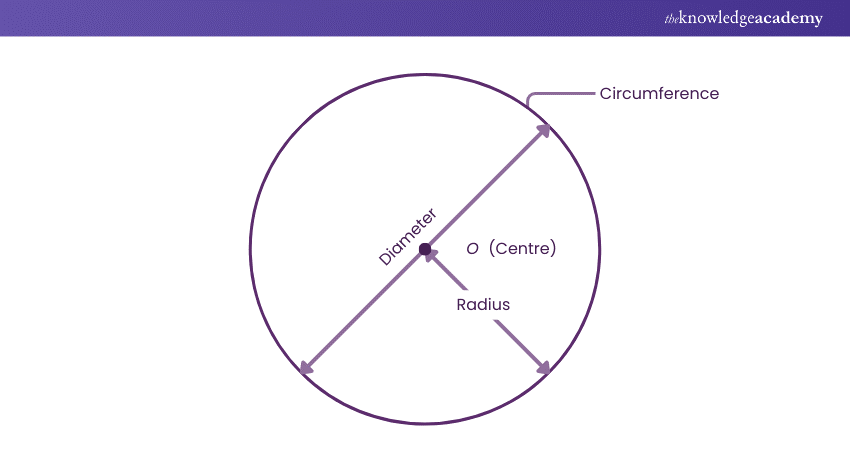
How to Calculate the Area Using the Circumference?
To calculate the area using the circumference, you first solve for the radius and then use the radius in the area formula. Here's the step-by-step process:
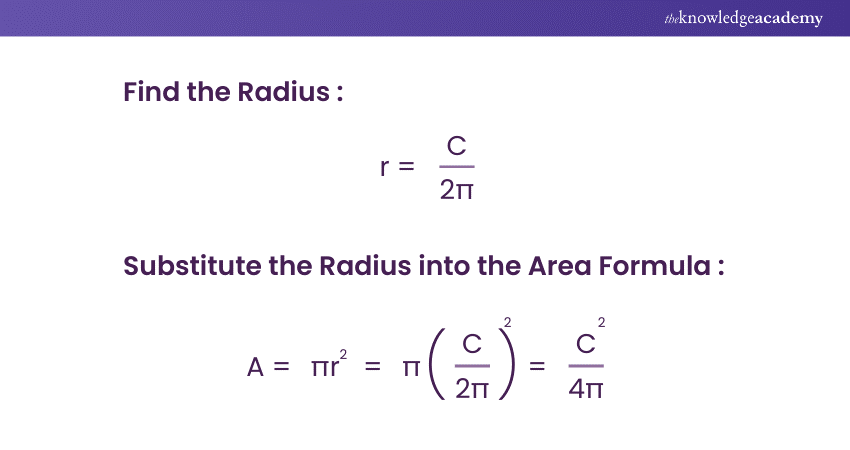
Thus, the Area of a Circle can also be expressed as

when the circumference is known.
Examples of Calculating the Area of a Circle
To illustrate these concepts, let's go through various examples of calculating the Area of a Circle using different given parameters.
Calculating the Area of a Circle with the Radius (Answer in Terms of π)
If the radius of a circle is 5 units, the area is calculated as:
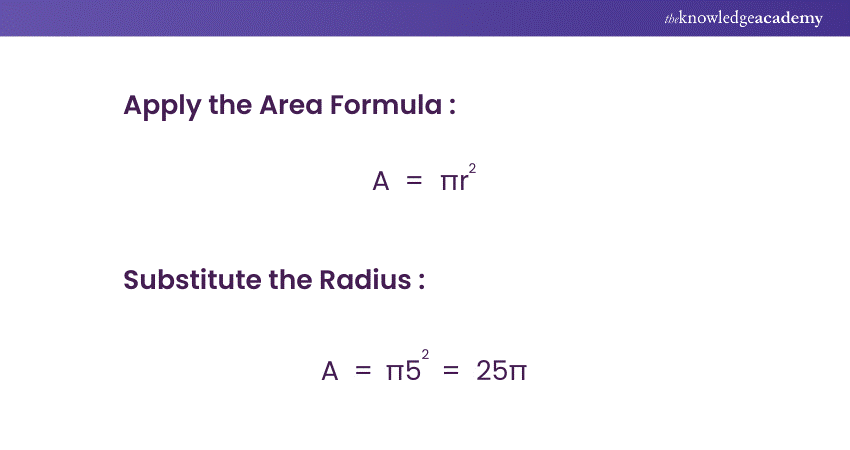
Calculating the Area of a Circle with the Diameter
If the diameter of a circle is 10 units, the radius is half the diameter.
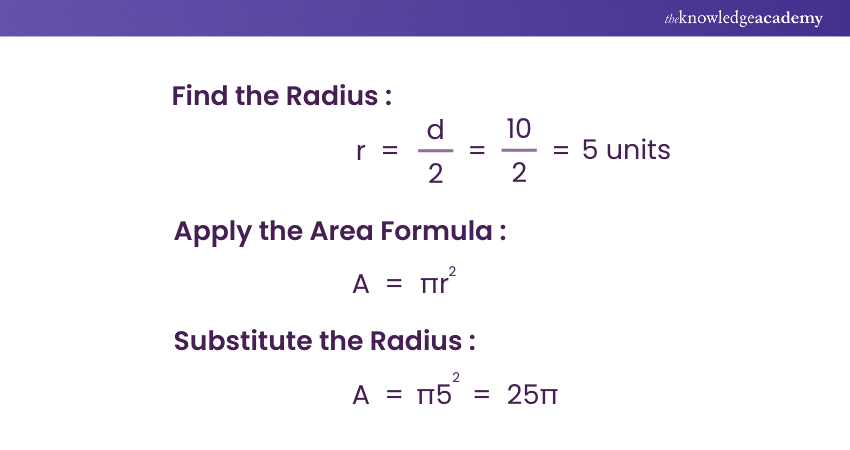
The area is 25π square units.
Calculating the Area of a Circle with the Circumference
If the circumference of a circle is 20π units, find the area.
Find the Radius from the Circumference:
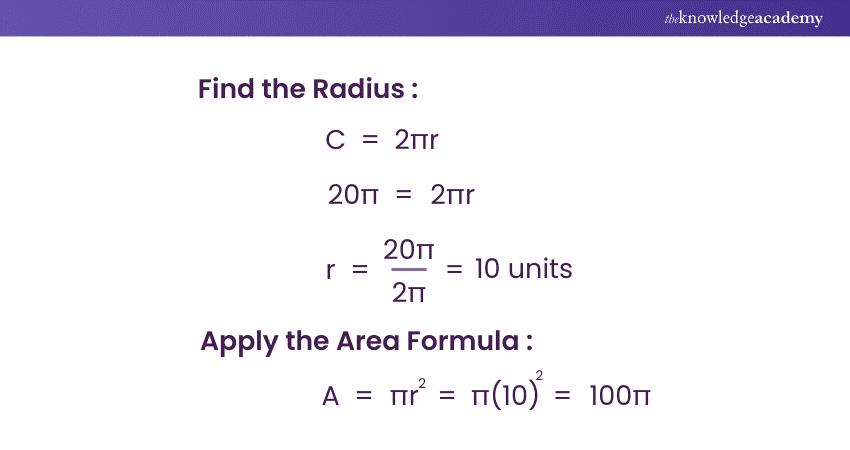
The area is 100π square units.
Unlock your potential! Register for our Personal Development Courses today to enhance your skills, boost your confidence, and realise your goals
Calculating the Area of a Semi-Circle with the Diameter
A semi-circle is half of a circle. The area of a semi-circle is half the area of a full circle with the same radius.
If the diameter of a semi-circle is 14 units, the radius is half the diameter.
Find the Radius:
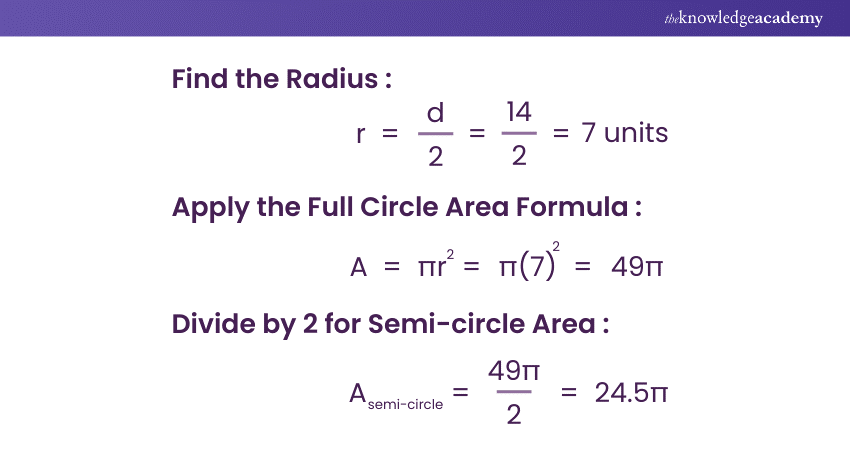
The area of the semi-circle is 24.5π square units.
Calculating the Area of a Circle with the Radius
If the radius of a circle is 4 units, the area is calculated as:
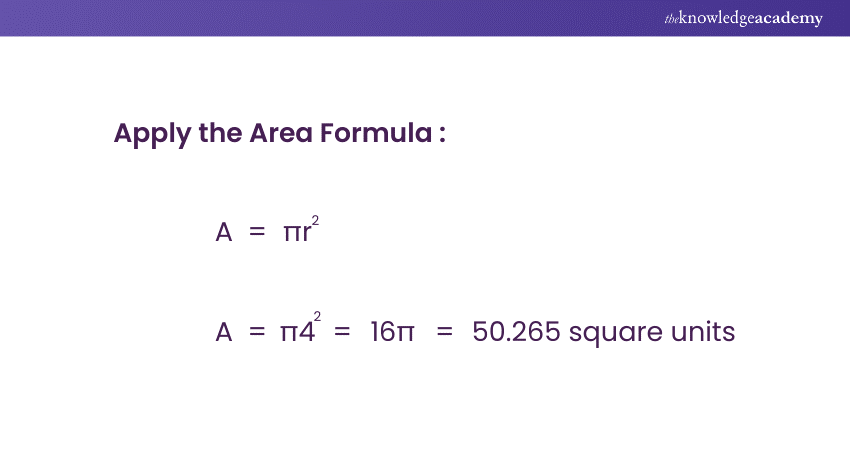
The area is 50.625 square units.
Calculating the Area of a Circle with the Diameter
If the diameter of a circle is 18 units, the radius is half the diameter.
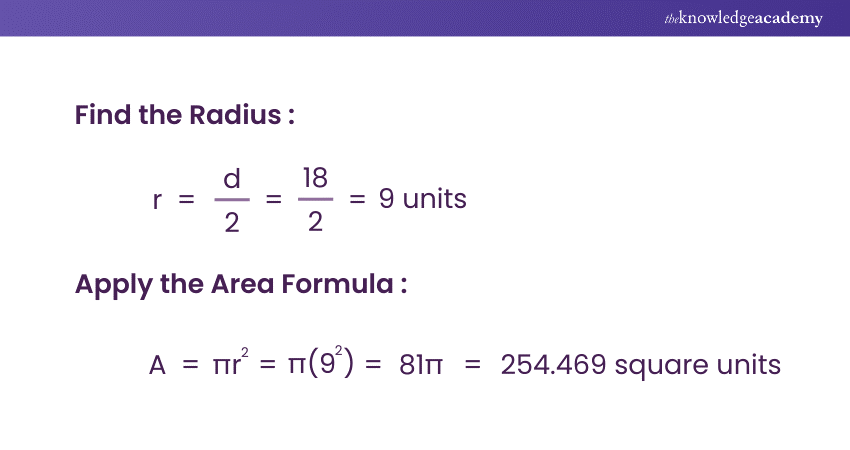
The area is 254.469 square units
Differences Between the Area and Circumference of a Circle
The area and circumference of a circle are related but measure different aspects of the circle. The area measures the amount of space inside the circle, calculated as πr2. It is expressed in square units. The circumference measures the distance around the circle, calculated as 2πr. It is expressed in linear units.
The key differences are:
a) Units: The area is in square units, while the circumference is in linear units.
b) Concept: The area pertains to the space within the circle, whereas the circumference relates to the perimeter around the circle.
c) Calculation: The area depends on the square of the radius, making it sensitive to changes in the radius, while the circumference is directly proportional to the radius.
Sharpen your skills. Train to Become a Top Engineer. Join our Engineering Skills Training now!
Conclusion
Congratulations! You've aced the Area of a Circle! Now you can measure pizzas, fabrics, or anything round with ease. Remember, practice makes perfect. So next time you see a circle, try calculating its Area of a Circle using the formula you learned. With a little more confidence, you can tackle even more complex shapes!
Take charge of your future! Join our Career Development Course today and unlock the skills and strategies to advance your professional journey.
Frequently Asked Questions

The rule for calculating the Area of a Circle is to use the formula A=πr2, where r is the radius of the circle.

The Area of a Circle depends on the radius, as it is calculated using the square of the radius, multiplied by the constant π. The radius is the key factor determining the circle's area.

The Knowledge Academy takes global learning to new heights, offering over 30,000 online courses across 490+ locations in 220 countries. This expansive reach ensures accessibility and convenience for learners worldwide.
Alongside our diverse Online Course Catalogue, encompassing 17 major categories, we go the extra mile by providing a plethora of free educational Online Resources like News updates, Blogs, videos, webinars, and interview questions. Tailoring learning experiences further, professionals can maximise value with customisable Course Bundles of TKA.

The Knowledge Academy’s Knowledge Pass, a prepaid voucher, adds another layer of flexibility, allowing course bookings over a 12-month period. Join us on a journey where education knows no bounds.

The Knowledge Academy offers various Personal Development Courses, including the Engineering Skills Training, Time Management Training and the Supervisor training. These courses cater to different skill levels, providing comprehensive insights into Best Courses After 12th.
Our Business Skills Blogs cover a range of topics related to Personal Development, offering valuable resources, best practices, and industry insights. Whether you are a beginner or looking to advance your Engineering skills, The Knowledge Academy's diverse courses and informative blogs have got you covered.
Upcoming Business Skills Resources Batches & Dates
Date
 Engineering Skills Training
Engineering Skills Training
Fri 13th Dec 2024
Fri 24th Jan 2025
Fri 21st Mar 2025
Fri 2nd May 2025
Fri 27th Jun 2025
Fri 29th Aug 2025
Fri 3rd Oct 2025
Fri 5th Dec 2025







 Top Rated Course
Top Rated Course



 If you wish to make any changes to your course, please
If you wish to make any changes to your course, please


